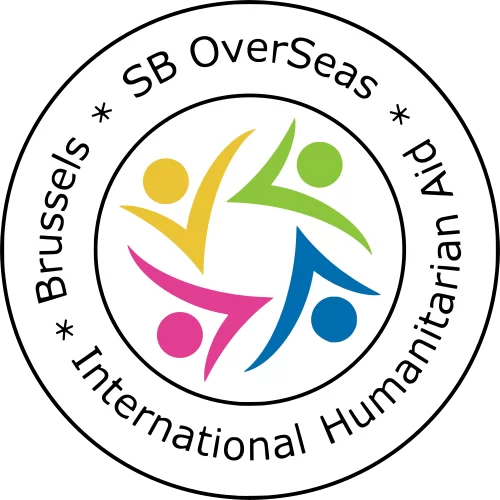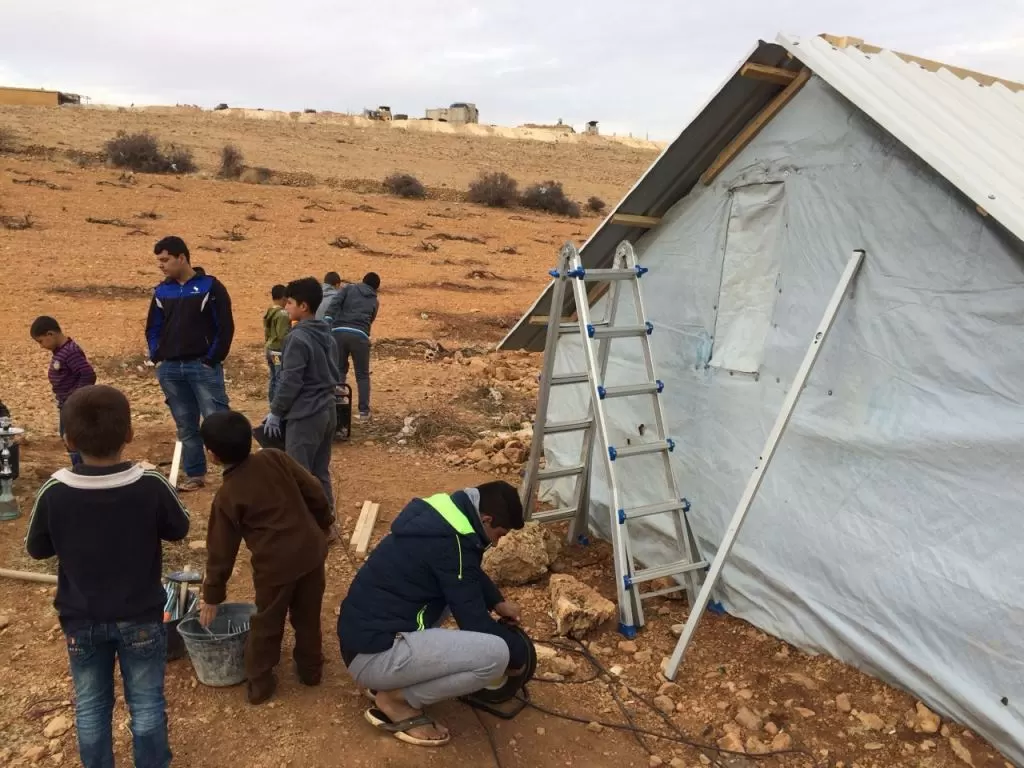Redacted version of original. Read original here (in German).
Merely a stone’s throw away from the Syrian border, Syrian refugees were getting through one of the hardest winters in the Lebanese town of Arsal.
The hardest time of the year for those living in the mountainous region located by the Syrian-Lebanon border is nearly at an end. Arsal, situated only a stones throw from the Syrian boarder on the slopes of the Anti-Lebanon mountains, has suffered heavy snow, unpredictable storms, monsoon-like rainfalls and bitterly cold temperatures. This winter, approximately 60,000 to 100,000 Syrian refugees are living in tents. For many families, this was their seventh winter in this hostile location.
Since December 2017, the Green Helmets have been working in Arsal to make the camps more hospitable through roofing and reinforcing the current tent structures. They also add windows which allow ventilation and light into the tents.
In the last few years, the number of residents in Arsal has more than tripled. With a population of about 35,000 people before the war, today it has risen to over 100,000. Most of these camps have between 10 and 60 tents which are leased out by the Lebanese landowners. Sometimes the cost is borne by the Lebanese or Syrian aid organisations, but mostly the cost is carried by the Syrian families.
In camp Wadi Swed, where the Green Helmets added roofs and windows to 50 tents, all the people came from the same village and knew each other before coming to Lebanon. The former mayor of the village is now the camp leader and acts as the port of call for issues within the camp. He opened a small shop to supply the community with food and other necessities. He lives with his wife and his grandchildren in a small 16m square tent. He lost his son in the conflict, and is now looking after his son’s children. In addition to the shop, lebanese fruit and vegetable vendors come to the camp daily to sell their wares. The community also shares a few motorcycles which they use to travel to the city centre.
Most children in the camp go to school, some to the Syrian schools, that are run in Arsal through Syrian or private organisations, and others attend the ‘evening shift’ of the Lebanese schools. The lessons are generally free, but the transport related costs can be problematic. Work is hard to come by and badly paid, especially in winter. Conflict with the lebanese employers is not uncommon and there are cases of labour exploitation.
The Syrian families are struggling to come to terms with their new life in Arsal. Again and again, the homeland is talked about and they reminisce on their old life. The hardships of this winter may be nearly over, but in a few months, the next one will be on its way. It is for this reason that the Green Helmets will continue their work.

